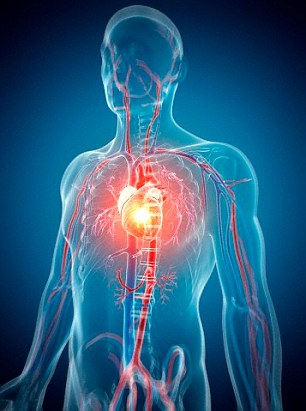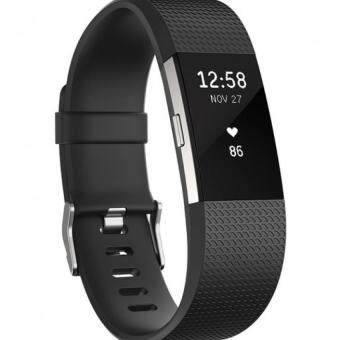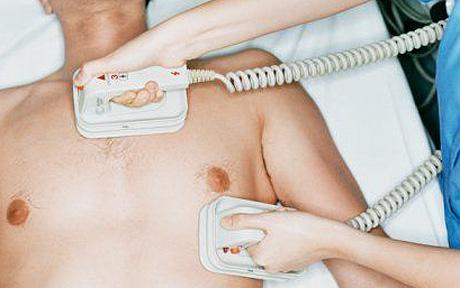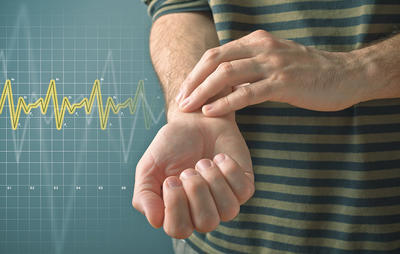
Most of us don’t know the normal resting heart rate. Nowaday, using the wearable tracker we could measure our daily heart rate.

Do you know our normal heart beats in a lifetime is 2.5 billion? American Heart Association in their statement predict that for those 70 year lifetime, an average human heart beats is more than 2.5 billion times.
But what is normal resting heart rate? Let’s read an article from Menshealth.com
What Is a Normal Resting Heart Rate?
A normal resting heart rate is between 60 and 100 beats per minute.
Having a heart rate in that sweet spot is important, because it decreases the demand of your heart muscle, meaning it doesn’t have to work as hard, explains Kate Traynor, M.S., R.N., director of Cardiovascular Disease Prevention Center at Massachusetts General Hospital.
“Think of your heart as a car and your blood’s oxygen as the gas. The faster you drive, the more gas you use (the more blood that needs to be pumped). More gas means more work for the heart, which can put it in constant overdrive,” says Traynor.
What Is a Slow or Fast Heart Rate?

Heart rate that averages above 100 beats per minute is called tachycardia. You can develop a high heart rate because of things like fever, anemia, dehydration, or physical or emotional stress, which triggers the release of the fight-or-flight hormone adrenaline.
“Adrenaline is like gasoline on a fire for heart rate,” says Traynor. It can also lead to bigger problems—everything from fainting spells to more serious issues like blood clots that lead to stroke, or eventual heart failure (Here’s how to know if you have a blood clot).
A 2010 study found that people with a resting heart rate at or above 84 beats per minutes over the span of five years were 55 percent more likely to die of heart disease than those with lower resting heart rates were.
On the other hand, a resting heart rate below 60 beats per minute is called bradycardia, and can cause insufficient blood flow to the brain.
“An abnormally low heart rate can lead to symptoms such as feeling tired, lightheaded, dizzy, and may even cause loss of consciousness,” says Suneet Mittal, M.D, FHRS, of the Heart Rhythm Society (Here’s what it means if you feel dizzy when you stand up).
You can develop a low resting heart if you take certain meds, like beta blockers for high blood pressure, or meds for hypothyroidism. Electrical abnormalities in the heart’s pathways can also lower your rate, too.
But a low rate resting heart isn’t always a bad thing. Endurance athletes—say, cyclists or runners—can have resting heart rates below 40 beats per minute.
So while there are exceptions—in some cases, too much intense athletic conditioning can cause “athlete’s heart,” where the heart is enlarged along with a low resting heart rate—it’s generally a good thing for your heart rate to skew lower rather than higher.
Without overdoing it, one of the best things you can do to maintain a healthy resting heart rate is exercise. You should be incorporating both cardio and weights into your routine, for a total of 150 minutes per week, says Traynor.
How Can You Find Out Your Resting Heart Rate?
Fitness trackers with heart rate monitors can be surprising accurate. A 2017 Stanford study found that six out of seven fitness trackers they tested were 95 percent accurate in measuring heart rate.

However, you shouldn’t always rely on technology to give you measurements.
“The best way to determine your resting heart rate is to learn to take your pulse,” says Dr. Mittal. “This can be taken by palpating the pulse at your wrist or neck.”
Here’s how to do it: Place your index and third fingers on your neck to the side of your windpipe. If you want to check it at your wrist, place two fingers between the bone and the tendon, looking for your radial artery—which is located on the thumb side of your wrist.
Once you find your pulse, count the number of beats in 15 seconds, then multiply that number by 4 to calculate your beats a minute, according to the Mayo Clinic.
While your heart rate may vary, it’s important to keep a healthy base rate. Once you know what that is for your body, keep tabs. If you start to notice changes with your heart rate, you should check in with your direct primary care doctor, especially if you notice it consistently dipping way below your normal resting heart rate, or frequent episodes of unexplained fast beating.
“If you’re a regular exerciser, but start to notice your routine takes more effort, or if you’re breathless or more tired than normal during your workout, it’s time to see a doctor,” says Traynor.
Plus, a sudden change in heart rate—either becoming too slow to too fast—should raise concern, too, Dr. Mittal says. Call your doctor to get checked out.
This article being written at MensHealth.com at this link . Yourhealthblog.net just share for readers that couldn’t visit Menshealth.com

Leave a Reply